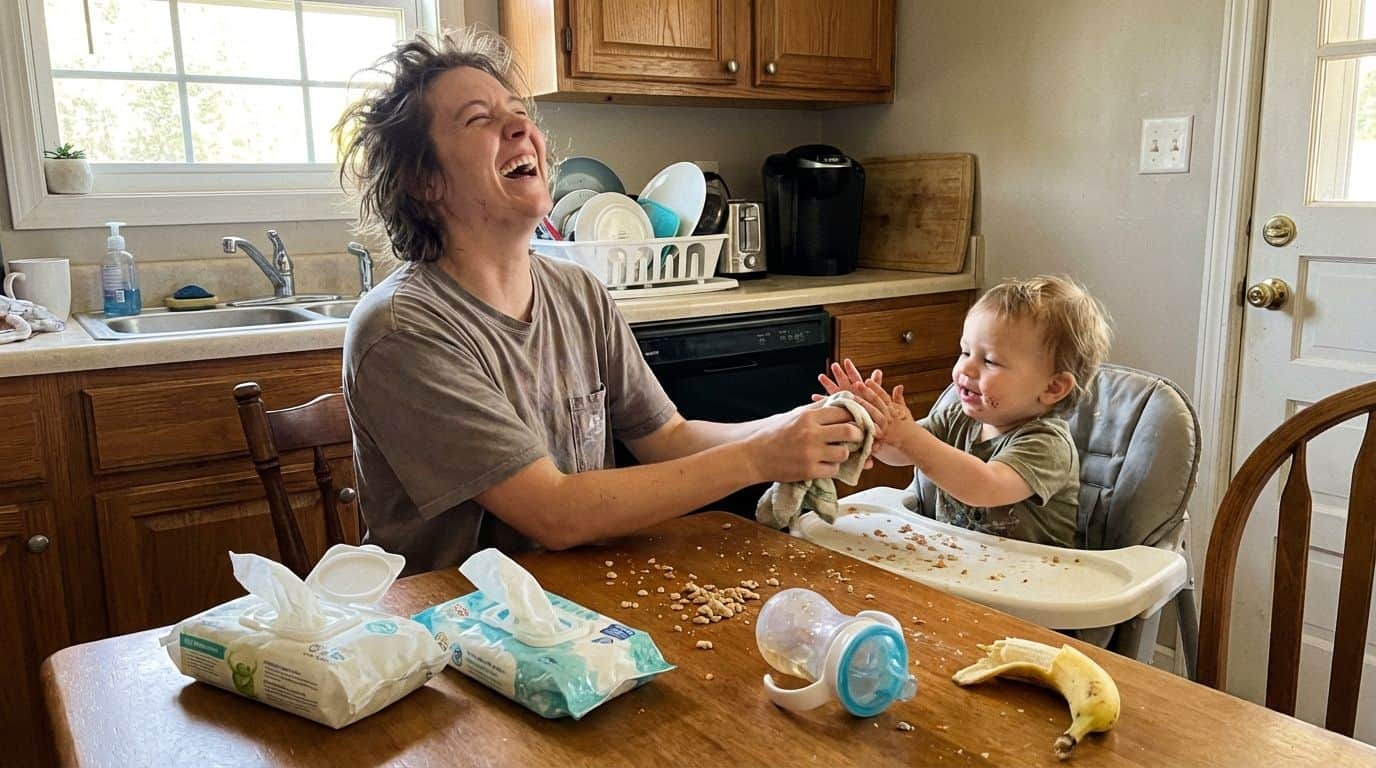How can I find joy in the small moments of parenting? Do you ever feel like the days are just a blur of wipes, snacks, and sticky fingers? I used to think joy was found in the big trips or perfect holidays, but I’ve learned it’s actually hidden in the messy, ordinary minutes. Raising little ones is exhausting, and it is easy to miss the magic when you are just trying to survive until bedtime.
Research now confirms that noticing the good things your child does helps them learn to talk and get ready for school. I want to share the small lessons that helped me turn our daily chaos into real moments of connection and joy. I’m going to walk you through the exact steps I use, and I think you’ll be surprised at how easy it can be.
Key Takeaways
Micro-moments of connection, like shared laughter or noticing small achievements, release oxytocin and reduce stress for both parent and child (Siobhan Chirico).
Catching children being good, also known as “watering the flowers,” supports academic success and builds lasting self-worth.
Adaptability grows through knowing your triggers, modeling emotional regulation, and using support resources like the O2B Kids philosophy of child-directed play.
Strong communication relies on open-ended questions and active listening techniques, such as repeating feelings back (“You seem frustrated”) to validate emotions.
Consistent routines—like tech-free zones at meals—and celebrating wins with tools like Chatbooks or simple star charts build deeper connections.
Table of Contents
How can I find joy in the small moments of parenting?

After reflecting on my introduction to parenthood, I noticed joy bubbles up in the tiniest bursts of connection. Shared laughter over spilled milk or catching my child’s sleepy smile releases a wave of oxytocin for both of us, building trust and melting away stress.
Siobhan Chirico, a respected family therapist, calls these “micro-moments of connection.” I see how vital they feel to our emotional well-being. These aren’t just feel-good seconds; they are the building blocks of security for a child.
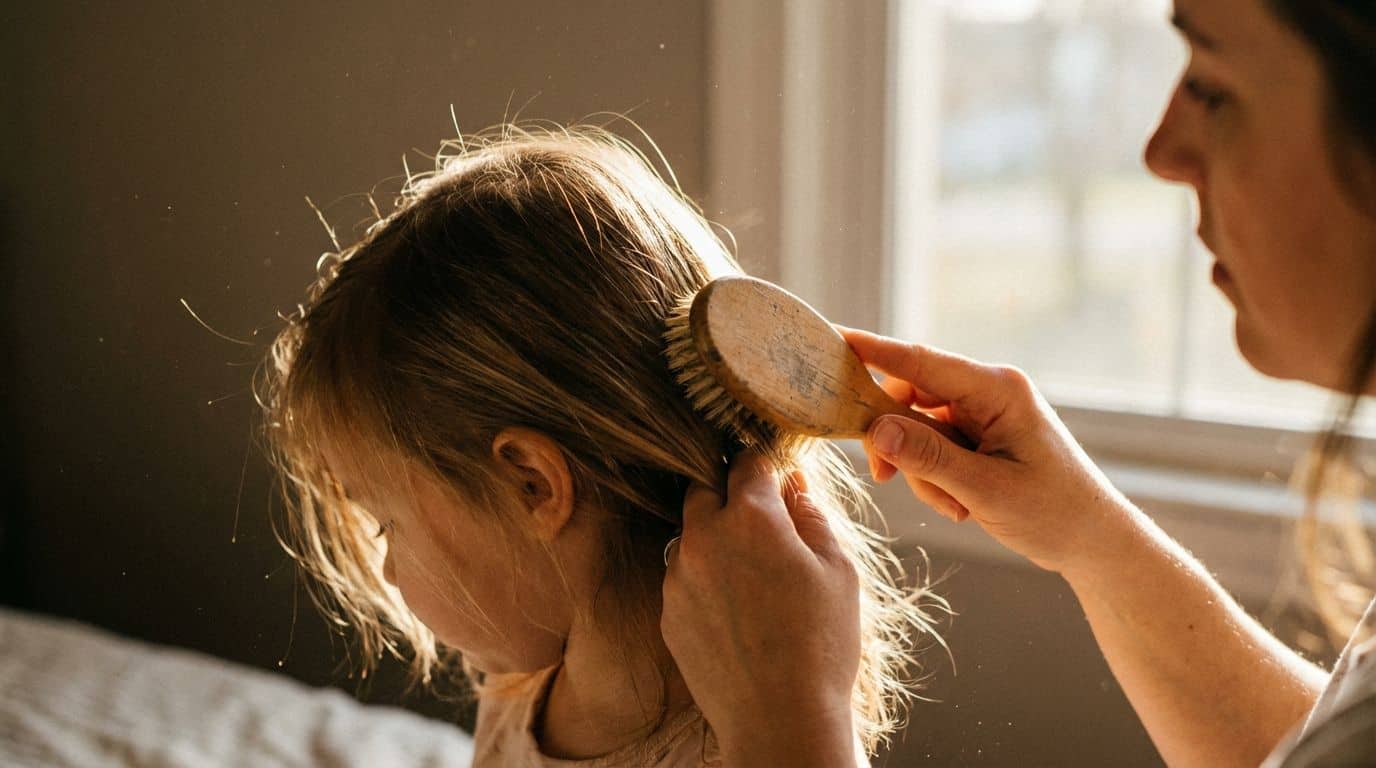
I try setting aside devices during meals so we can focus on each other without distractions. Pausing to notice the softness of my baby’s hair or the way new words tumble from her mouth reminds me that language development grows with every small chat about clouds or bugs.
These tiny experiences boost patience, compassion, and gratitude day by day. Practicing thankfulness helps me spot more joys hiding in plain sight.
The little things? The little moments? They aren’t little. – Jon Kabat-Zinn
What are the most important lessons learned through trial and error in parenting?
Small joys make each day brighter, but trial and error has taught me some big lessons. My oldest spent her preschool years looking for my attention, whether she was giggling or throwing a tantrum.
Positive and negative attention both shape their behavior. I learned that kids want us, plain and simple. Too often, my focus drifted to the “weeds” like misbehavior instead of watering the “flowers”—their kind words or effort in schoolwork linked directly to academic achievement later on.

A 2023 report by Positive Action found that students with supportive parents are 81% more likely to graduate from high school. This statistic changed how I viewed my daily interactions; my positive attention isn’t just nice, it is an investment in their future.
Now, I try to catch them being good much more than catching them making mistakes. Little ones resist commands just like adults drag their feet at chores; it’s human nature peeking out through babyhood.
Instead of just saying “because I said so,” I started giving reasons behind rules. I do this even with toddlers who barely understand all the vocabularies flying around our kitchen table during snack time.
Actions echo louder than lectures. My apologies matter as much as theirs do when tempers flare over broccoli at dinner or fears about kindergarten readiness pop up before bed.
By showing humility and admitting slip-ups myself, I give my children tools for resilience and empathy well beyond childhood. This prepares them for those wild teenage years where loneliness or crankiness feels huge.
Through these ups and downs, perfection isn’t part of parenting. Getting better—and laughing a bit along the way—matters so much more for their health and happiness long term.
Why is patience important in parenting?
Patience gives me space to pause, breathe, and guide my teenager through the ups and downs of child-rearing while keeping love—and a dash of humor—in our home.
https://www.youtube.com/watch?v=Y6dxZSXRMcI
When I feel my own temper rising, I use the Box Breathing technique used by Navy SEALs. You simply inhale for four counts, hold for four, exhale for four, and hold for four. It resets my nervous system in under 20 seconds, allowing me to respond rather than react.
How can I become more adaptable as a parent?
Parenting keeps me on my toes, especially since every child brings something new to the table. Adaptability helps me keep up with kids’ changing needs, from babies to teenagers.
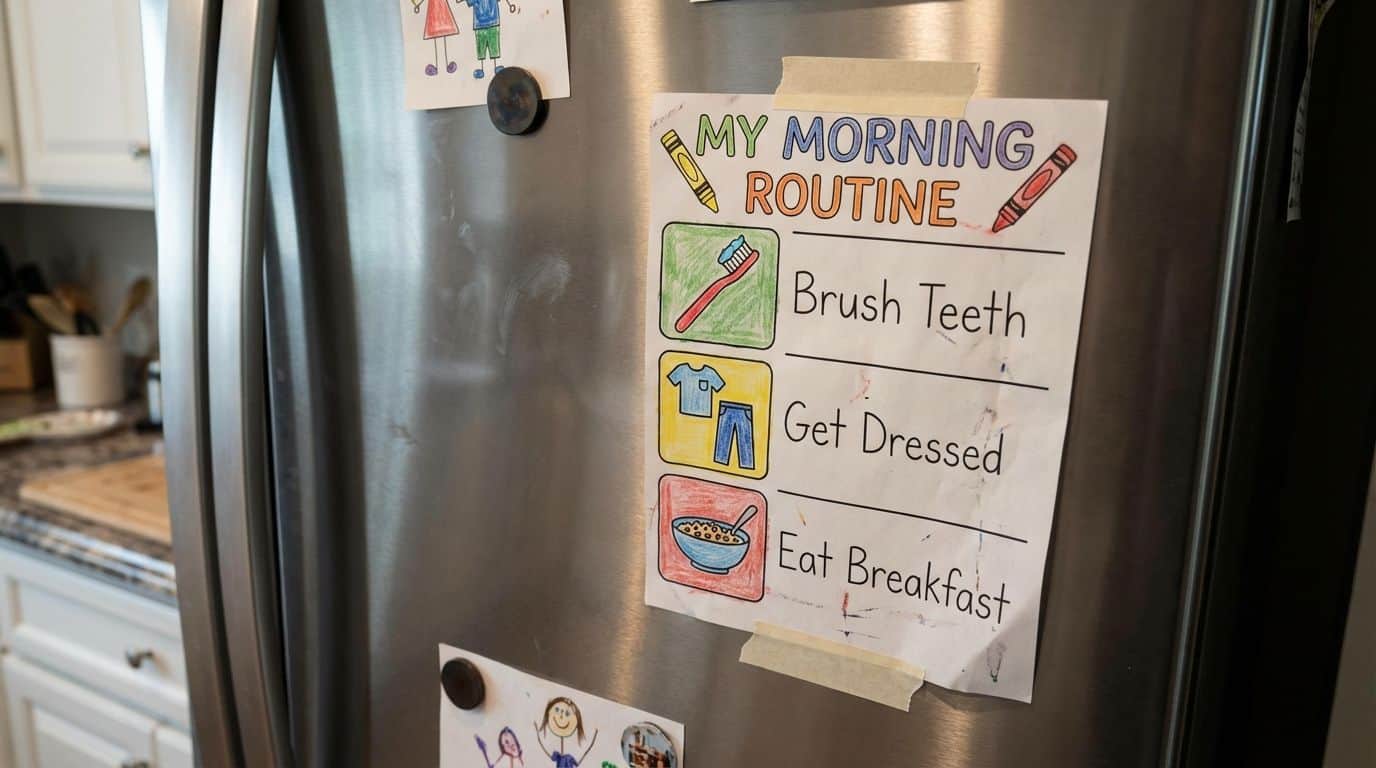
- Pay attention to triggers. For example, if my child’s mess makes me tense, I note it down. Knowing what gets under my skin gives me a starting point.
- Watch your reactions. If my first response is to shout or shut down, I take a mental step back. I remind myself that modeling emotional regulation supports healthy cognitive development.
- Create a specific plan. If our morning routines turn into chaos, I write out simple steps and stick it on the fridge. Tools like visual checklists help kids see what comes next without me nagging.
- Carve out time for self-care. This has made all the difference in my patience level and ability to adjust quickly when plans get tossed out the window.
- Treat mistakes as lessons. Instead of beating myself up, I treat each one as a lesson learned—like discovering that humor eases academic stress more than nagging ever did!
- Seek community. Flexibility grows stronger when I talk openly with other moms or seek guidance from resources like this parenting method based on experience.
- Stay curious. Every day brings fresh challenges as well as small wins; staying open-minded has helped shrink those achievement gaps and deepen connection in ways love alone couldn’t manage.
Adaptation isn’t about being perfect; it’s about staying present enough to make thoughtful changes for myself and my kids as we learn together.
Building strong communication with your child
I ask open questions, not just yes or no. My child lights up when I give them space to share their wild ideas or show me a new drawing—sometimes even on the living room wall.
Experts often recommend the “Show, Don’t Tell” approach. Instead of asking “Did you have a good day?”, I say, “Tell me the best thing that happened at lunch.” This specific prompt invites a story rather than a one-word answer.
How do I improve communication with my child?
Strong communication makes parenting smoother, like oil to a squeaky hinge. Kids learn best from us, not just through words but through our actions and how we connect every day.
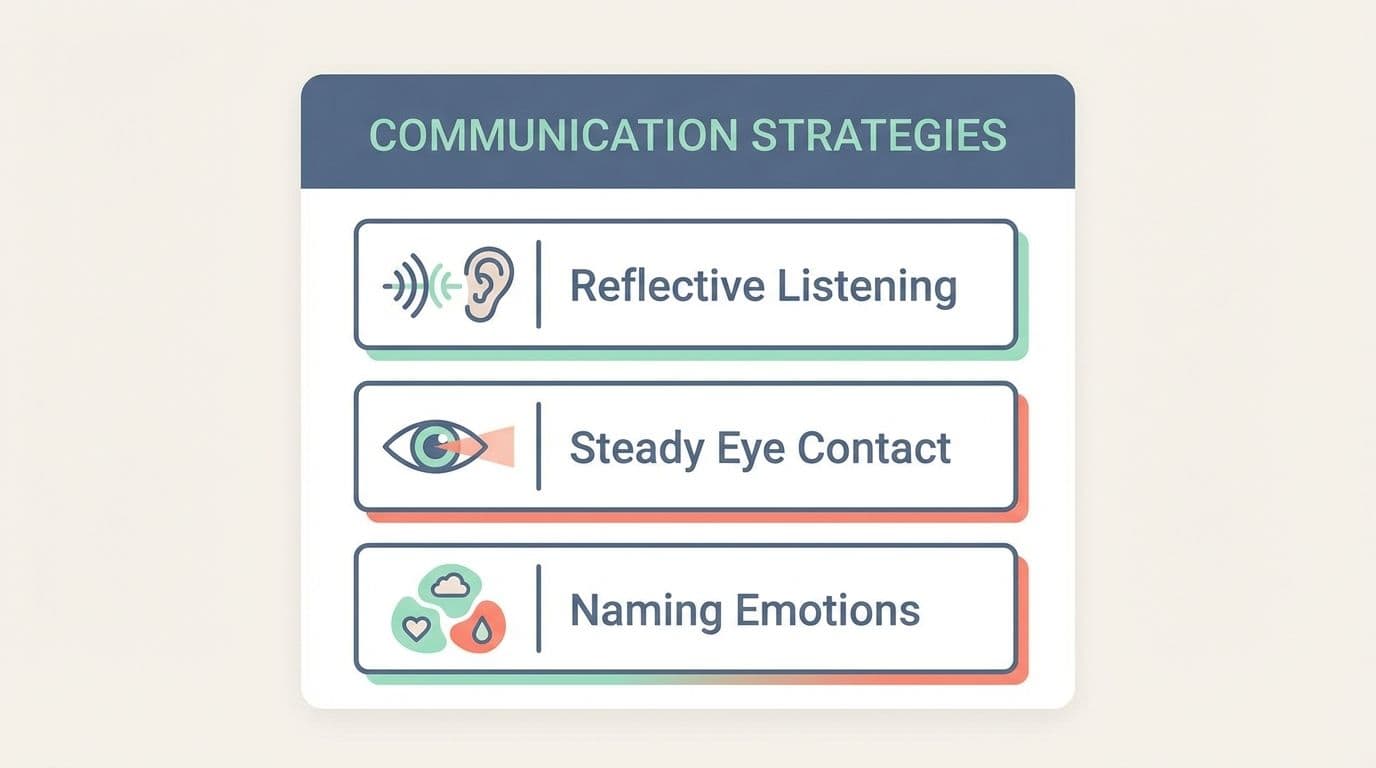
| Communication Strategy | Why It Works |
|---|---|
| Reflective Listening | Repeating back what they say (“I hear that you are sad”) validates their feelings instantly. |
| Steady Eye Contact | Looking them in the eye signals real attention and boosts trust faster than words. |
| Naming Emotions | Saying “You seem frustrated” helps them process big feelings, a key step for academic success. |
- Speak using clear, age-friendly language that respects your child’s feelings and understanding level.
- Use both verbal cues—like saying “I hear you”—and nonverbal gestures such as hugs or a gentle pat on the back to show empathy and support.
- Practice active listening by nodding and summarizing. For example, say, “So you felt upset at school today,” which helps kids feel heard right down to their toes.
- Praise with specifics instead of empty cheers. Instead of tossing out a quick “good job,” I use noticing statements like, “You worked so hard on that science project,” boosting self-worth naturally.
- Set fair expectations before situations get sticky. No bribes needed—just calm talk about boundaries and consequences.
- Lead by example in conversations. I keep promises and stay patient even when tempted to lose my cool, showing my daughter that respect isn’t just talk—it’s action.
- Sometimes silence holds more power than chatter. Sitting quietly together after a rough day can speak volumes about safety and love.
For those managing solo mom life or parenting challenges alone, these small habits can create deep connection even in tough times—building trust one honest chat at a time.
What are effective ways to listen to my child?
I know how easy it is to miss what our kids try to tell us, especially on busy days. Learning to listen well has helped me grow as a more empathetic mom—and deepened my connection with my own children.
- I put my phone down, turn off the TV, and give my child full attention. Looking them straight in the eye puts us on the same team.
- Dropping down to their level helps me see things from their view; crouching or sitting makes talking feel less stressful for them.
- I use simple words that match their age so they feel understood, not talked over.
- Nodding along, making soft sounds like “uh-huh,” and repeating the main idea of what they just told me shows I’m really listening—this tells them their words are important.
- Reflecting back their feelings after a conflict, like saying, “It sounds like you’re sad about sharing your toy,” lets them know I hear both the story and the emotion behind it.
- Sometimes quiet works better than words. Holding space in silence invites my child to share more of what’s on their mind.
- Even if I disagree or need to set limits later, acknowledging first (“You seem upset right now”) helps calm big emotions before we solve anything together.
- From small chats after school to bigger conversations about growing up, these listening habits encourage my kids to keep coming back—even during hard times.
If you want a few extra tips about learning how to be an empathetic parent and what really matters most, check out these qualities of a good mom for some helpful guidance too!
How do I balance discipline and nurturing effectively?
Ignoring most misbehavior saves my energy for teaching. If something is dangerous, I stop it right away—no questions asked. Otherwise, I use the method from Simply on Purpose: a “calm stop,” gentle redirection, and then reinforcement of the good stuff with clear praise.
Celebrating even tiny wins through kind words does wonders for trust and makes good habits stick. My house sounds like this: “Wow, you put your shoes by the door! High five!” Honest commitments are key; if I say bedtime stories happen at eight o’clock, they do.
The kids know what to expect because promises are not up for debate. Consistent follow-through shapes their sense of safety. Exceptions throw everyone off balance faster than a marble on tile.
O2B Kids’ programs inspired me to blend learning with rules. Their philosophy emphasizes that discipline works best when children feel connected. Each day feels less like boot camp and more like a lab full of cheerful experiments in patience and kindness.
Our family partnerships keep us on track whether things go smoothly or sideways before breakfast is done. Shared goals mean strong roots—academic readiness matters as much as feeling loved enough to try again after mistakes.
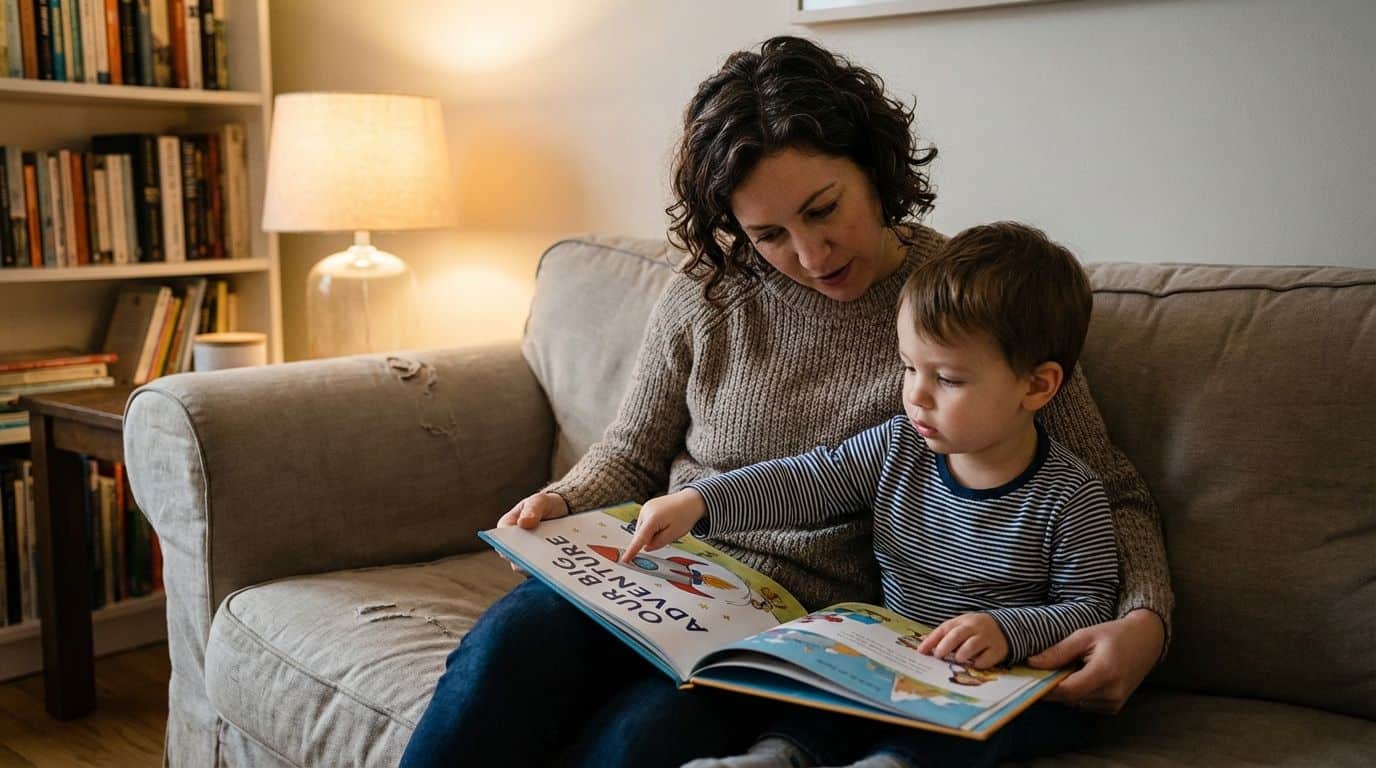
“Discipline without love is harsh; love without boundaries is chaos.”
How can I celebrate milestones and everyday victories with my child?
Childhood passes in a flash, so I try to savor every milestone and tiny win. Even small moments can bring joy and boost my child’s confidence.
One of my favorite tools is a simple star chart from Melissa & Doug. It gives a visual high-five for daily tasks, which kids absolutely love. For memories, I use the Chatbooks app to automatically print photos from my phone into books, so we don’t lose those precious candid shots.
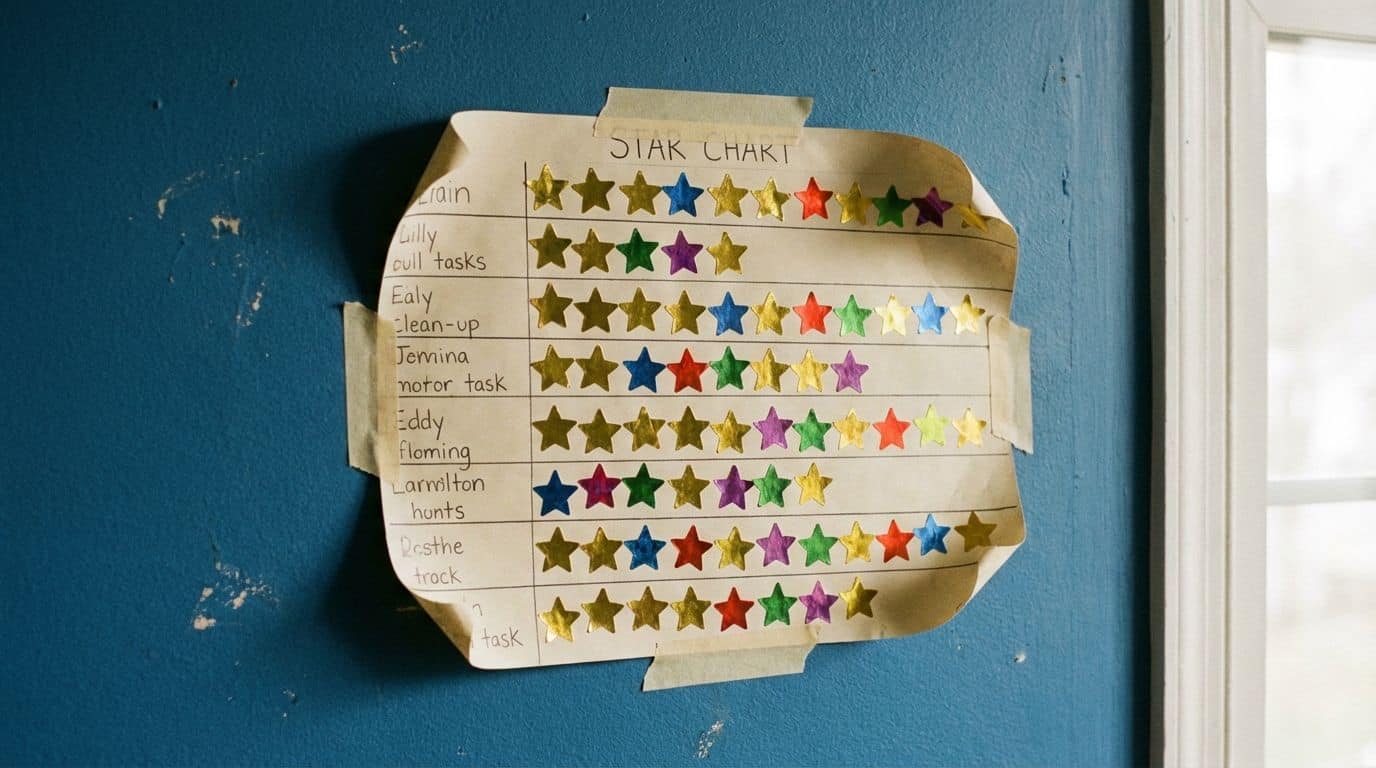
- I snap photos during big events like first words or starting school, turning those memories into a colorful scrapbook for my child to revisit.
- Hugs, high fives, and silly dances show my physical gratitude after achievements—no matter how small.
- Congratulating out loud with “I’m so proud of you!” gives an emotional lift that sticks longer than candy or toys ever could.
- For everyday wins, I use stickers or let my kid ring a special little bell together—we both laugh every time.
- Sharing milestones with family and friends through calls or group texts builds an even stronger sense of belonging for my child.
- We sometimes celebrate with simple crafts or baking cookies; these make the day extra fun and reinforce the joy of trying hard and learning new things.
- Noting growth in a notebook helps me keep track of progress, making it easier to spot areas where my child needs more support or encouragement next time.
How will parenting evolve in 2025?
Parenting in 2025, for me, means acting like a lighthouse—shining steady light so my child can explore safely without me hovering over every step. This trend, often called “Lighthouse Parenting,” is about being a stable beacon rather than a stormy controller.
I set boundaries that glow but do not block their path. Warmth, acceptance, and reasonable discipline matter even more now, as families try to balance freedom with guidance each day.
In my house, tech-free zones crop up around the kitchen table and garden beds bloom out back instead of just plastic toys. We treat the dinner table as a “device hotel” where phones check in for the night, allowing us to check in with each other.
Weekend “digital detox” hours bring laughs and real talks. We swap video games for growing tomatoes or learning where our food comes from together.
More time goes to strong communication. Listening becomes an art form again as I show I hear them first before doling out advice or limits. Connection wins over perfection in every messy moment we share on this wild ride called modern parenting.
People Also Ask
What are some key lessons on joy from parenting experience?
I have found that true happiness often hides in “micro-moments,” and psychology research confirms that savoring these brief interactions—like a sudden giggle or a quiet hug—boosts emotional resilience more than big events do. By actively looking for these small wins, you retrain your brain to spot joy even during the messy chaos of spilled milk.
How does patience play into raising children?
Patience is really about self-regulation, which is why I use Dr. Andrew Weil’s “4-7-8” breathing technique to physically calm my nervous system before I react to a tantrum. Taking that specific pause allows me to respond to my child with empathy instead of just adding my own noise to the situation.
Why is connection important between parents and kids?
Prioritizing connection through simple “serve and return” interactions builds the neural pathways for trust and security that your child will rely on for the rest of their life.
Can these seven lessons help new parents handle stress better?
Yes, using these tools helps you practice cognitive reframing, a psychological method that lowers stress by training you to view tough moments as opportunities for growth rather than personal failures. This shift in perspective prevents burnout and reminds you that we are all learning alongside our kids.
References
https://www.todaysparent.com/family/parenting-happiness-small-joys/ (2025-11-13)
https://www.empoweringparents.com/article/4-steps-to-more-patience-as-a-parent/
https://www.ncbi.nlm.nih.gov/books/NBK402020/
https://www.unicef.org/parenting/child-care/9-tips-for-better-communication
https://pmc.ncbi.nlm.nih.gov/articles/PMC4869776/
https://www.cdc.gov/parenting-toddlers/communication/active-listening.html
https://www.facebook.com/groups/2133137986926357/posts/4112316769008459/
https://chapter1daycare.com/celebrate-every-step-the-joy-of-milestones-in-your-childs-journey/
